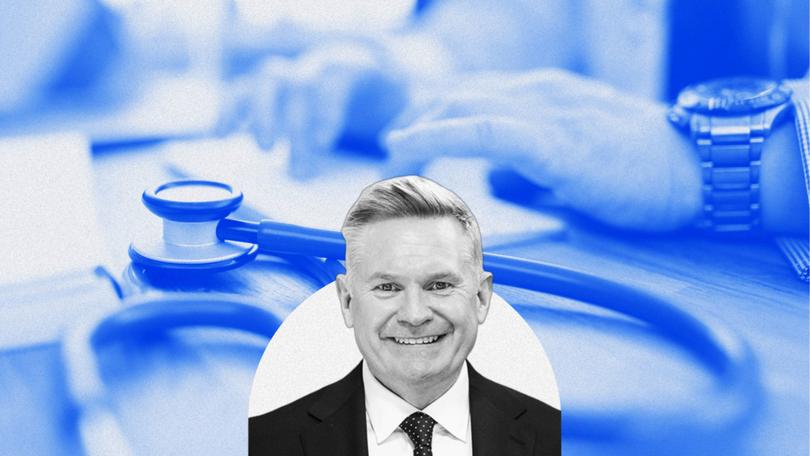MICHAEL USHER: Becoming a GP was once considered a noble career choice. Not anymore, & our health is suffering
MICHAEL USHER: General practice was once thought of as a prestigious, noble career. Not anymore, and our health is suffering because of it.

For some 20 years, I’ve enjoyed a mostly healthy relationship with my local doctor.
On the face of it, he’s an old-school GP. But talk with him, as I do a few times a year, and there’s nothing old school about him.
Always ahead of the next lurgy wanting to attack us, handled the pandemic with calm reassurance, never alarmist, always practical and to the point, equally nurturing of our family’s medical and mental health, and curious about what we as humans are doing to ourselves and to people around us.
Sign up to The Nightly's newsletters.
Get the first look at the digital newspaper, curated daily stories and breaking headlines delivered to your inbox.
By continuing you agree to our Terms and Privacy Policy.So when I saw him this morning, for a few vaccines — for age and seasonal reasons, nothing dramatic — we got to chatting, as we often do.
He’s a man of many views, and often the appointment is split between fixing me and trying to fix the world. And sometimes not in that order.
Turns out, what he’s most passionate about right now, is saving his own profession. In fact, “wither the GP” was his suggestion for the story he implored I “must write”.
At the core of the good doctor’s concern, is the alarming rate at which GPs are leaving the profession, and worse, not entering the profession at all. It’s more than a concern to the profession’s peak body the Royal Australian College of General Practitioners — they go so far as to call it a crisis.
The Australian Medical Association estimates there will be an undersupply of about 10,600 GPs by 2032.
In the 2023 Health of the Nation report, the RACGP said “almost three in 10 GPs (29 per cent) intend to retire in the next five years, resulting in a net premature loss of 24 per cent of all practising GPs”.
“Heavy workloads and demands on GP time are eroding optimism about the profession, despite some of the pressures of the COVID-19 pandemic receding. Alarmingly, among practising GPs, 64 per cent are considering reducing the time they spend practising or are considering stopping practise altogether.”
In a very short time, six to 10 years, there are two major health challenges facing the nation that will desperately need the help of GPs. One is the ageing population that is so dependent on the frontline relationship of a local family doctor who manages the best of primary care — vaccines, minor ailments, after-surgery care, a friendly ear, early diagnosis and every other tool of health management in a local setting. The other is keeping all this away from overloaded hospitals and their emergency departments. They just can’t handle it and almost broke during the pandemic. A potential third pressure, identified by the Australian Medical Association, is population growth.
The issue of cost is relevant in this crisis. Has it become too expensive to visit a doctor who doesn’t bulk bill? Has the gap become too much? On that, the RACGP argues that it’s losing doctors because some GPs can’t earn enough to run a practice, employ staff, cover extraordinary insurance plus a range of other preventative costs. And they say rebates are woefully low.
My doctor, who is resisting retirement, says one of his great frustrations is when he talks at local schools to encourage senior school students to consider a path into becoming a GP. Despite his impassioned pitch about the admirable profession he’s loved — community care, doing good, helping, healing and all that — the most common reaction is blank faces. The few who may be interested in medicine have their sights set on becoming specialist surgeons. As my doctor argues, how do patients mostly get to see the specialists? Through the steady, studious and considered consultation and referral of a GP.
There in that scenario lies perhaps another issue altogether. Where in our society has the pursuit of the highly paid, more profiled professions left the admirable, lesser paid professions?
Notwithstanding the incredibly high level of learning and training needed to get to those heights, in medicine anyway. But why is being a GP not attractive, but a heart surgeon is? The AMA says it is the result of “negative perceptions and decreasing prestige of general practice among medical students”.
It’s a crisis felt harshly on the suburban edges of increasingly larger cities and of course in the regional areas.
The cost of establishing a new GP surgery is extraordinary in new parts of ever-growing cities and the competition from mega-clinics is fierce. Keeping a good local GP in a country town has been the challenge and failure of many local health authorities and governments over the past decade and a half.
Our older population is also deeply worried that their trusted local GP is going to retire, and who can catch up on 20 years and more of their medical history?
National Cabinet last April approved a report recommending new streamlined approvals for the faster and more efficient entry of international health practitioners to work in Australia.
If we can’t recruit and train local GPs, we need to import them and now. Still not a quick fix to the drain of GPs, but a start.
As my GP appointment ended this morning — with a jab in each arm for good measure — the good doc asked me if there was anything else I needed.
Shame, I said, that I couldn’t offer him a script for his ailing profession.
He said: “You can just write about it. Highlight the crisis and hopefully a few more bright young Australians will think about pursuing a career at the coalface of Australia’s healthcare.”
